Discover The Doctor's Kitchen Podcast
The Doctor's Kitchen Podcast

The Doctor's Kitchen Podcast
Author: Dr Rupy Aujla
Subscribed: 16,609Played: 458,396Subscribe
Share
© Dr Rupy Aujla
Description
The Doctor's Kitchen is the show about food, medicine, lifestyle and how to improve your health today.
Join Dr Rupy and his expert guests as they explore the multiple ways in which diet and lifestyle can help you achieve your healthiest and most fulfilling life.
Covering a broad range of subjects such as Nutritional medicine, Mental wellbeing and Mindset, you are sure to learn actionable tips and principles to lead your best life.
Join the online community at www.thedoctorskitchen.com to learn more
Your Feedback Matters - we’d love to hear from you! Take our quick survey to share your thoughts about our show - and help shape future episodes!
Hosted on Acast. See acast.com/privacy for more information.
396 Episodes
Reverse
Today I’m speaking with world-leading gastroenterologist Dr Will Bulsiewicz about how to heal your gut and keep it working at its best. We get into what inflammation really is, why it matters, and how the food you eat can help you find the right balance.In this episode…What inflammation actually is and why it’s more than just a buzzwordThe hidden signs of inflammation that most people don’t connect with their gutWhat is “leaky gut”How modern life drives chronic inflammation and what you can do about itWhy fibre is the cornerstone of gut health and how to add it sensiblyThe power of short-chain fatty acids like butyrate to heal the gut and calm inflammationHow sugar, salt and fat fuel inflammationSupplements vs whole foods for gut health and when fibre supplements may helpHow much fibre you really need each day and how to increase it without discomfortSimple, practical food swaps and recipes Dr B uses himself (including chia seed bread!)Dr. Will Bulsiewicz, or "Dr. B," is a celebrated gastroenterologist and gut health expert, founder of popular microbiome nutrition company 38TERA, the New York Times bestselling author of two books, the U.S. Medical Director for ZOE and Adjunct Assistant Professor at Emory School of Medicine. He is a champion for preventing and reversing disease through microbiome optimisation and shares his expertise via social media and at theguthealthmd.com.I’m super excited about his next book coming out in January 2026, Plant-Powered Plus!🎬 Watch the podcast on YouTube here📱 Download The Doctor’s Kitchen app🌐 View full show notes, including guest details, on our website☕️ Try Exhale Coffee here🥗 Join the newsletter and receive a 7 day meal plan📷 Follow on Instagram Hosted on Acast. See acast.com/privacy for more information.
Dementia is a disease of lifestyle. That’s what my guest Dr Louisa believes, and it’s her mission to get everyone up to speed on the science so we can delay or entirely prevent dementia around the globe.Today we’re diving into supplements like creatine, omega 3 and vitamin D as they relate to brain health optimisation and prevention of one of the biggest killers in the UK, Dementia. I now personally take these supplements regularly as part of my daily routine and while I don’t necessarily feel immediate benefits, the research is solid enough for me to make this decision.Dr Louisa specialises in neurophysiology, Alzheimer’s disease prevention, and the science of brain optimisation. Her mission is to live in a world where Alzheimer’s no longer exists. Louisa graduated from the University of Sydney Medical School, where her doctoral focus in neurophysiology spotlighted lifestyle interventions and neurodegeneration. After relocating to New York, she advanced her research career by working alongside world-class neurosurgeons, contributing to clinical investigations in cranioplasty and post-neurosurgical outcomes, with a particular emphasis on the role of exercise and nutrition in recovery and brain health.A trusted advisor to high-performing athletes and healthcare professionals, Louisa translates complex neuroscience into actionable strategies for longevity, brain health, and performance. 🎬 Watch the podcast on YouTube here📱 Download The Doctor’s Kitchen app🌐 View full show notes, including guest details, on our website☕️ Try Exhale Coffee here🥗 Join the newsletter and receive a 7 day meal plan📷 Follow on Instagram Hosted on Acast. See acast.com/privacy for more information.
🎙️ In today’s episode, I’m joined by Professor Ailsa Welch, a leading expert in nutritional epidemiology at the University of East Anglia. We explore the silent yet powerful changes that begin in midlife how aging affects our muscles, bones, and metabolism, and why prevention in your 40s, 50s and 60s is key. From sarcopenia and osteoporosis to frailty and fracture risk, we unpack how these conditions interact with one another, and what the latest science says about maintaining strength and vitality as we age.We discuss ..How muscle and bone structure evolve with ageThe role of skeletal muscle in metabolising carbs, fats, and proteinKey mechanisms of aging:Chronic low-grade inflammationOxidative stressMitochondrial declineThe impact of diet on these processes, including nutrients like:Magnesium 🧂Vitamin C & E 🍊Carotenoids 🥕Protein 🥩Calcium, B12, Iron & Vitamin D💡 Most importantly, we offer practical, evidence-based advice for people in midlife and beyond: what to eat, how to move, and what to look out for when it comes to micronutrient deficiencies and supplementation.Professor Ailsa Welch led the development of dietary assessment methods for the EPIC-Study (European Prospective Investigations into Cancer and Nutrition) between 1993 & 2007. She has more than 23,000 citations!🎬 Watch the podcast on YouTube here📱 Download The Doctor’s Kitchen app🌐 View full show notes, including guest details, on our website☕️ Try Exhale Coffee here🥗 Join the newsletter and receive a 7 day meal plan📷 Follow on Instagram Hosted on Acast. See acast.com/privacy for more information.
You may have heard of the liver king, but today we have the sprout king on the show. Doug Evans is the Founder and CEO of The Sprouting Company. He was a former paratrooper in the U.S. Army’s 82nd Airborne Division and an early pioneer in the natural food industry, he authored the national bestseller The Sprout Book, and he now lives in Wonder Valley Hot Springs in Southern CaliforniaDoug is on a mission to make sprouting mainstream. After learning about sprouts as the most nutritious food on the planet, he wants everyone to get as excited about sprouting as he is.This is a fun episode where we break down a little bit about the science but also the joy around creating your own food on a counter top with the most potent ingredient we have access to. The seed.Unlocking the benefits of seeds via sprouting has been a game changer for me and my health. I use lentil, mung bean, broccoli and sunflower sprouts weekly in my meals and whenever I share them online, I always get asked about where they come from. I spoke about how to sprout in my first cook book, but now you can sprout your own using handy tools like Doug's Sprouting jars (that you can see for yourself on YouTube). You can find them in health food stores, but they’re so easy to make yourself at home, giving you access to nature's true multivitamin!🎬 Watch the podcast on YouTube here📱 Download The Doctor’s Kitchen app🌐 View full show notes, including guest details, on our website☕️ Try Exhale Coffee here🥗 Join the newsletter and receive a 7 day meal plan📷 Follow on Instagram Hosted on Acast. See acast.com/privacy for more information.
Longevity is exploding in popularity. On my recent trip to LA it’s very apparent that bio hacking has morphed into a genuine branch of medicine that legitimate medical researchers and doctors are practicing. One of those people at the forefront is Dr Darshan Shah, a board certified surgeon who has performed over 20,000 surgical operations, including trauma and complex reconstructive procedures. As a Longevity Medicine specialist, he has advised thousands of patients on how to optimize their well-being and extend their healthspan and lifespan.Dr. Shah earned his medical degree at the age of 21, becoming one of the youngest doctors in the United States. He continued his training at the Mayo Clinic, has authored numerous papers and patented medical devices. Dr. Shah’s belief in continual education and self-improvement has earned him alumni status at Harvard Business School, Singularity University, and other prestigious institutions.Today I sat down with Darshan at one of his Next Health Clinic branches in West Hollywood to discuss the 4 pillars of longevity, which are …Lifestyle Medicine - diet, sleep and exerciseFunctional Medicine - detoxification, emotional health, hormones, inflammationPreventative Medicine - screening for heart health, brain health and cancerLongevity medicine - peptides, supplements, IVs and more🎬 Watch the podcast on YouTube here📱 Download The Doctor’s Kitchen app🌐 View full show notes, including guest details, on our website☕️ Try Exhale Coffee here🥗 Join the newsletter and receive a 7 day meal plan📷 Follow on Instagram Hosted on Acast. See acast.com/privacy for more information.
Could modern life be a little too comfortable for our ancient bodies? This week, I’m exploring the idea that our 21st-century lifestyle might be mismatched with what our biology evolved for and how reintroducing a few ancient challenges could help you feel sharper, calmer, and more resilient.Without going full caveman, there are a few mild and ‘natural’ stressors that may have benefits to our bodies and considering how comfortable our lives are today, would require us to purposely reintroduce.I dive into:🍽️ Why mild hunger and thirst may be benefit (Not every craving needs a snack—your stress hormones might thank you.)🌿 How plant “toxins” are misunderstood heroes From broccoli to turmeric, these phytochemicals can trigger powerful cell protection pathways.🔥❄️ Whether saunas & cold plunges are worth the hype How short exposures to heat or cold, separately, might boost metabolism, improve circulation, and even support brain health.Today’s episode was influenced by the conversation I had with Dr Leo Pruimboom about the science of ‘intermittent living’. The benefit of these challenges isn’t in the challenge itself, it’s in the recovery. And fasting, movement, temperature, and more mirror the environments we evolved in.To enjoy the benefits of these, I don’t think it requires a complete lifestyle overhaul, I see these as gentle nudges to remind your body what it was built for. The key is dose. Not too much, not too little. Remember, this isn’t a one-size-fits-all formula. It’s a curious invitation to explore how mild, short-term stressors can unlock long-term health. These aren’t replacements for healthy habits, just small extras that might make a big difference.This area of research is still evolving. Not all ancient humans lived the same way. There wasn’t one perfect lifestyle. And while the theory behind intermittent living is fascinating, it’s not a prescription.Think of it as adding a few evolutionary ingredients back into your modern life!🎬 Watch the podcast on YouTube here📱 Download The Doctor’s Kitchen app🌐 View full show notes, including guest details, on our website☕️ Try Exhale Coffee here🥗 Join the newsletter and receive a 7 day meal plan📷 Follow on Instagram Hosted on Acast. See acast.com/privacy for more information.
Nutrition today is noisy. If you spend five minutes on Instagram or YouTube, you’ll see someone telling you that seed oils are poison, soy will mess up your hormones or butter in your coffee will make you live forever.The truth is, fear sells really well. But real life is usually a bit more simple and a lot more nuanced.So, how do we make sense of all this in our day-to-day lives? That’s what we’re tackling today. I’ve got Max Lugavere with me. He’s a health and science journalist and New York Times best-selling author on a crusade to help you live longer and feel better.We don’t agree on everything, which is exactly why this will be a good one to listen to. We’re going to unpack some of the biggest myths that confuse people right now, where these ideas come from, what current research actually shows and what both of us think is a reasonable middle ground.If you’ve ever stood in the oil aisle wondering if sunflower oil is going to kill you or if you should swap it for beef tallow, stick around. Let’s get into it.🎬 Watch the podcast on YouTube here📱 Download The Doctor’s Kitchen app🌐 View full show notes, including guest details, on our website☕️ Try Exhale Coffee here🥗 Join the newsletter and receive a 7 day meal plan📷 Follow on Instagram Hosted on Acast. See acast.com/privacy for more information.
This episode is for anyone whose life doesn’t always follow a perfect routine. Shift workers, new parents, students, frequent flyers... basically, all of us at some point. 💤🌍✈️If you’ve ever felt out of sync, foggy, tired at odd hours, or struggled with digestion or mood your circadian rhythm might be to blame. Today I dive into …🧠 How your body clock governs everything From digestion, hormones, and metabolism to brain performance, mood, and sleep quality, your circadian rhythm is your internal conductor.💡 Why modern life throws us off Artificial light at night, late-night meals, inconsistent sleep and screen time.🌙 Simple, practical tips for shift workers 🕐 When to sleep 🍽️ What to eat (and when) 🌞 How to recover and realign when your schedule gets messy🥦 Nutrition strategies to support your rhythm Learn how to time meals, caffeine, and light exposure to protect your energy, digestion, and mental clarity even during chaotic weeks.We can’t always control our schedule but we can work with our biology, not against it.🎬 Watch the podcast on YouTube here📱 Download The Doctor’s Kitchen app🌐 View full show notes, including guest details, on our website☕️ Try Exhale Coffee here🥗 Join the newsletter and receive a 7 day meal plan📷 Follow on Instagram Hosted on Acast. See acast.com/privacy for more information.
“You can take a human out of being in nature, but you can’t take nature out of the human being” This is the statement I pose to Dr Leo right at the beginning of our chat today, and I think it encapsulates the essence of our conversation.Today we’re going to discuss the comfort crisis and the importance of ‘ancient stressors’ to support modern health.To give some context to this discussion, it seems like we’ve made life easier than ever. Meals on demand, warmth at the press of a button, and barely a reason to move. But this relentless convenience could be silently eroding our health. In this episode, we ask the provocative question: Has modern comfort become our newest disease? In other words, our biology still expects challenge. When we remove all friction from daily life, we also remove the very triggers that kept us metabolically flexible, mentally sharp, and emotionally resilient.From fasting and thirst to cold plunges and plant toxins, we explore the science of intermittent living, the idea that reintroducing short bursts of ancient stressors might act like a vaccine against the chronic diseases of modern life.We unpack:Why stress isn’t always the enemy but a tool, when used wiselyHow ancient triggers like hunger, cold, and heat can reboot resilienceWhat it means to recover well, and how purpose, stillness, and nature complete the cycleWhether biomarkers like CRP or HRV really change with these practicesHow to start your own intermittent living journey safely and simplyDr Leo Pruimboom is a physiologist, medical biochemist, who has dedicated hislife to the development of PNI as a clinical science converting a translationalmedical science into a solution focused discipline in which the body is considereda complete interconnected soma in which everything is everywhere at the sametime. In 1987 he established the European Academy of CPNI and collaborated withmultiple international Universities. Today, Pruimboom Institute holds 10 differentCampuses worldwide to provide specialised CPNI training to medical professionalsand other healthcare practitioners.Throughout his career, Dr Pruimboom has helped thousands of patients fromaround the world and has become an internationally recognised researcher andlecturer. 🎬 Watch the podcast on YouTube here📱 Download The Doctor’s Kitchen app🌐 View full show notes, including guest details, on our website☕️ Try Exhale Coffee here🥗 Join the newsletter and receive a 7 day meal plan📷 Follow on Instagram Hosted on Acast. See acast.com/privacy for more information.
Let’s unpack the world of probiotics. What they are, how they work, and who might actually benefit from taking them.Today you’ll learn about the science behind probiotic strains, explore whether fermented foods like kefir and kimchi are enough, and discuss when probiotics may help with issues like IBS, supporting our immune health, or even preventing antibiotic related side effects.To help us with this complicated topic, we have Dr Megan Rossi on the show today. She’s the founder of The Gut Health Doctor®, and is one of the most influential gut health specialists internationally, and a leading Research Fellow at King’s College London. She’s a registered dietitian and nutritionist but Dr Megan has an award-winning PhD in Probiotics.She is also the founder of the gut health food brand, Bio&Me, and she has launched a targeted range of clinically-proven live bacteria supplements, SMART STRAINS®.Dr Megan also shares how to navigate the supplement aisle with confidence, what to look for on a label (such as the Genus, Species and Strain), and how probiotics compare to other foods with probiotic-like effects and other foundational gut health habits like fibre and plant diversity.There is no financial affiliation of any kind with Doctor’s Kitchen and Dr Megan’s brand of probiotics.🎬 Watch the podcast on YouTube here📱 Download The Doctor’s Kitchen app🌐 View full show notes, including guest details, on our website☕️ Try Exhale Coffee here🥗 Join the newsletter and receive a 7 day meal plan📷 Follow on Instagram Hosted on Acast. See acast.com/privacy for more information.
If you ordered a steak at a restaurant are you essentially ordering a heart attack or a nutrient-rich whole food?Few foods spark more debate than red meat. It’s been blamed for heart disease, cancer and diabetes, but some people praise it for being high in iron, zinc, vitamin B12 and quality protein. So, if you add red meat to your plate is it helpful or harmful?Whether you eat meat or avoid it, I think you’ll find today’s conversation cuts through the noise of social media and clears up a lot of confusion in the nutrition space. I wanted to disentangle the obvious issues surrounding environmental concerns of eating animal products from today's discussion, and simply talk through the data as we have it. It’s given me a lot to think about when it comes to recommendations for people, as well as how concerned I would be about red meat consumption overall.Today we’re chatting with researcher and academic Dr. Kevin Maki, PhD, who specialises in clinical studies on nutrition, metabolism, and chronic disease risk factors. He's also an Adjunct Professor at Indiana University School of Public Health, a Master and Past President of the National Lipid Association, and a Fellow of the American Heart Association and The Obesity Society. Dr. Maki has participated in over 300 clinical trials and published more than 250 scientific papers, books and book chapters.You’re going to learn about:Whether red meat is actually unhealthier than poultryWhat red meat really does to your cholesterol, your blood pressure and your long-term health riskWhether red meat is a source of unhealthy fatsTypes of red meat and which ones are less healthy than othersHow much red meat you can safely consumeWe also talk about seed oils, plus high protein diets and their relationship to kidney disease, longevity and diabetes risk.The 4 big takeaways I got from this episode were:Moderate amounts (50g per day) of unprocessed lean red meat in the diet is fineDiet quality and the addition of whole unprocessed foods is more importantHigh Protein is very important in middle aged and older adultsBeware of the 4 white poisons: Sugar, Salt, Saturated Fat and refined Starches🎬 Watch the podcast on YouTube here📱 Download The Doctor’s Kitchen app🌐 View full show notes, including guest details, on our website☕️ Try Exhale Coffee here🥗 Join the newsletter and receive a 7 day meal plan📷 Follow on Instagram Hosted on Acast. See acast.com/privacy for more information.
Are you truly allergic to dairy or just intolerant? Can headaches, joint pain or fatigue be signs of hidden allergies? And what about those online food intolerance tests? Can you trust them?In this episode, Dr Helen brings clarity and evidence to the confusing world of food allergies, intolerances and sensitivities.We cover:🧠 Whether allergies can show up as migraines, fatigue, gut issues or mood changes🔬 Why allergy rates are rising🧪 The truth about IgG testing and other common myths🥜 Whether it’s safe to give babies peanut or egg before age one, and why early exposure matters💬 How to approach elimination diets and reintroductions safely❤️ The emotional toll on families and where to find supportWe also explore rising allergy rates, the hygiene hypothesis, environmental triggers including plant-based proteins, and what is actually working in clinics today, such as immunotherapy and support networks.If you or someone you love is navigating the food allergy maze, this episode is full of practical and science-based insights.Dr Helen Evans Howells is a GP with a Master's in Allergy with distinction from the University of Southampton. She trained and worked with the hospital’s allergy team for over four years. She now runs a specialist allergy clinic offering food immunotherapy for children and lectures widely across the UK and internationally. Dr Helen is a trustee of Anaphylaxis UK, Chair of its Clinical and Scientific Panel and former Chair of the Primary Care Group at the British Society of Allergy.🎬 Watch the podcast on YouTube here📱 Download The Doctor’s Kitchen app🌐 View full show notes, including guest details, on our website☕️ Try Exhale Coffee here🥗 Join the newsletter and receive a 7 day meal plan📷 Follow on Instagram Hosted on Acast. See acast.com/privacy for more information.
Have you ever wondered if some people simply have a fast metabolism? You know the kind of people that seem to be able to eat anything and still maintain a healthy weight? Does your metabolism slow as you age? What about the effect of the menopause? And are intermittent fasting and certain supplements evidence based ways to speed up your metabolism?These are the questions I put to Dr Adam Collins, researcher at University of Surrey where I completed my Nutritional Medicine Masters. Dr Collins is a well-known expert in metabolism and nutrition science. He's done a lot of research on energy expenditure, intermittent fasting, and how different diets affect metabolism.Topics we cover include …🔬 What is metabolism?🐢 Can you actually have a “slow” metabolism?📉 Metabolism and aging❄️ Cold exposure for metabolism😰 Stress and metabolic dysfunction🔁 What is metabolic flexibility?❤️ Why it matters (beyond weight)⚡ Carbs vs fat—who fuels what?🧠 How to boost metabolic flexibility🎬 Watch the podcast on YouTube here📱 Download The Doctor’s Kitchen app🌐 View full show notes, including guest details, on our website☕️ Try Exhale Coffee here🥗 Join the newsletter and receive a 7 day meal plan📷 Follow on Instagram Hosted on Acast. See acast.com/privacy for more information.
Up to 40% of cancers are attributable to modifiable risk factors, including diet, obesity, alcohol, tobacco use, and physical inactivity. The WCRF estimates that about 1 in 3 cancer cases in high-income countries could be prevented by healthier diets, maintaining a healthy weight, and regular physical activity. And according to the National Cancer Institute in the US, physical inactivity is a recognized risk factor for colon, breast, and endometrial cancer.But even with the best intentions there’s a lot of confusion around lifestyle and cancer. One day it’s red meat, the next it’s microwaves. We hear about them in headlines, social media posts or passed around in conversation, which can make it really hard to know what matters most.I’m joined today by Professor Robert Thomas, an NHS oncologist and researcher who’s spent decades studying how lifestyle (from food and movement to gut health and supplements) affects cancer risk and recovery.We talk about …🧠 Common cancer myths - mushrooms and herbs🥗 Anticancer diets – What to eat to reduce your risk.🦠 Gut health & cancer – The powerful connection between your microbiome and cancer.🔥 Inflammation & risk – How chronic inflammation increases cancer susceptibility.🏃♂️ Exercise & cancer – The science behind how movement helps fight cancer cells.🧴 Microplastics & personal care products – The hidden risks in everyday items.💄 Aluminium in makeup & deodorants – Investigating the potential health impacts.👶 Fertility impact – How lifestyle and environmental exposures may affect reproductive health.He’s also recently appointed Head of Integrative Oncology at The Royal London Hospital for Integrative Medicine making him the UK’s first NHS Integrative Oncologist, to complement his existing role as an NHS Consultant Oncologist at Addenbrooke's and Bedford Hospitals. He is also a Clinical Teacher at Cambridge University. At the start of our conversation we talk about his new role and the types of patients he encounters.View the podcast on our YouTube ChannelYou can find out more from Professor on his YouTube channel https://www.youtube.com/@ProfThomasMDBooks: How to Live, Keeping healthy with Cancer🎬 Watch the podcast on YouTube here📱 Download The Doctor’s Kitchen app🌐 View full show notes, including guest details, on our website☕️ Try Exhale Coffee here🥗 Join the newsletter and receive a 7 day meal plan📷 Follow on Instagram Hosted on Acast. See acast.com/privacy for more information.
Today marks the 300th episode of The Doctor’s Kitchen podcast!I started this journey 8 years ago and since then I’ve sat down with world-class researchers, doctors, nutritionists, neuroscientists, exercise physiologists and many more, all with the aim of sharing their knowledge so you can improve your health and understanding of food and lifestyle medicine.What has made the biggest difference to me personally are a few simple rituals I return to, even when I am sleep deprived, overwhelmed… or caring for a very cute but very demanding newborn.In this episode, I’m walking you through the daily and weekly habits, shared by some of our amazing guests, that have actually stuck. The ones that help me feel better, think more clearly and stay grounded, no matter what the week throws at me.Episodes referenced in this podcast:Ep #281 with TJ Power - Digital devices and mental healthEp #291 - Prof Leigh Breen - Exercising for older adultsEp #6 - Dr Michael Farquar - Sleep for Night shift workersEp #282 - Dr Kiran Chopra - Exercise strategies for longevityEp #193 with Johann Hari - Why You Can't FocusEp #267 with Dr Louisa Nicola - Sleep health and how to optimise your brain🎬 Watch the podcast on YouTube here📱 Download The Doctor’s Kitchen app🌐 View full show notes, including guest details, on our website☕️ Try Exhale Coffee here🥗 Join the newsletter and receive a 7 day meal plan📷 Follow on Instagram Hosted on Acast. See acast.com/privacy for more information.
It’s World Gut Health Day this week (officially known as World Digestive Health Day), and I wanted to do a dive into something I get asked about more frequently. And that’s leaky gut.I’m cutting through the supplement marketing and scary-sounding terms to talk about:Why your gut might need support even if you feel totally fineWhy gut health is linked to bloating, fatigue, brain fog and moreWhat “leaky gut” actually meansCan you test for leaky gut, and are the online kits worth itMy favourite foods for a healthy gutFor gut-friendly recipes, check out our collection in the Doctor’s Kitchen app and website – all designed with fibre, polyphenols and plant variety in mind to support a healthy gut.👉 https://tdk.link/gut-health-recipesPapers referencedhttps://pmc.ncbi.nlm.nih.gov/articles/PMC6790068/#S10 https://www.clinicalnutritionjournal.com/article/S0261-5614(21)00416-7/fulltext https://pubmed.ncbi.nlm.nih.gov/29519916/ https://pmc.ncbi.nlm.nih.gov/articles/PMC8427160/#s1🎬 Watch the podcast on YouTube here📱 Download The Doctor’s Kitchen app🌐 View full show notes, including guest details, on our website☕️ Try Exhale Coffee here🥗 Join the newsletter and receive a 7 day meal plan📷 Follow on Instagram Hosted on Acast. See acast.com/privacy for more information.
We brush our teeth every day. It’s one of those things we do without thinking. But your mouth is doing so much more than just housing your teeth. It has a strong link with protecting your heart, avoiding type 2 diabetes and even potentially preventing dementia. In fact having a regular hygienist appointment can improve your blood sugar levels and significantly reduce inflammation in the body.Flossing, brushing properly and even tongue scraping is far more than keeping your teeth looking spick and span, it’s critical to keeping inflammation in balance which could extend to longevity benefits. But what about fluoride in toothpaste, mouth washes, antibacterial gums and prebiotic flossing?Today, I’m joined by Dr Victoria Sampson - a functional dentist and researcher who’s changing how we think about oral health. She’s helping us understand that the mouth isn’t separate from the rest of the body, it’s also where chronic disease shows up.Today we’ll discuss:👄 The 5 signs your mouth is trying to tell you about your health🧠 What your oral health reveals about your brain, heart and gut🦷 How to care for your mouth in under 5 minutes a day👩🏽⚕️ The daily routine a dentist wants you to follow💦 Why saliva is much more important than you think🔬Whether we should be testing our ‘oral microbiome’?We’ll also talk about why I’m going to be adding propolis, mouth taping, chewing gum and tongue scraping to my regime. If you’re interested in learning more about Dr Victoria’s clinic and tests, check the show notes or head to https://thslabs.co.ukOral Microbiome Test (ORALIS-1): https://thslabs.co.uk/@Drvictoriasampson🎬 Watch the podcast on YouTube here📱 Download The Doctor’s Kitchen app🌐 View full show notes, including guest details, on our website☕️ Try Exhale Coffee here🥗 Join the newsletter and receive a 7 day meal plan📷 Follow on Instagram Hosted on Acast. See acast.com/privacy for more information.
I asked some of the brilliant minds we've had on The Doctor’s Kitchen Podcast (doctors, neuroscientists, psychiatrists, nutritionists) one question: What’s your number one tip for better mental health? The truth is, there’s no single fix. Mental health is a mosaic of biology, lifestyle, connection, meaning and nourishment. It’s not something we “deal with” when things fall apart. It’s something we need to tend to every day, like we do with brushing our teeth or watering plants.These insights are not only evidence-based, but deeply human. I hope you find something in this episode that resonates with you, whether it’s a small shift, a fresh perspective or a reminder to care of yourself.You’ll hear from:TJ Power, neuroscientistDr Romayne Gadelrab, Consultant Psychiatrist Julia Samuel, psychotherapistKiran Chopra, Sport and Exercise PhysiologistDr Megan Rossi, dietitian & researcherDrew Ramsey, PsychiatristDr. Amrita Vijay, researcherDr Miguel Toribio-Mateas, neuroscientistI’ll be giving you the low down on food and mental health to kick off the episode too!🎬 Watch the podcast on YouTube here📱 Download The Doctor’s Kitchen app🌐 View full show notes, including guest details, on our website☕️ Try Exhale Coffee here🥗 Join the newsletter and receive a 7 day meal plan📷 Follow on Instagram Hosted on Acast. See acast.com/privacy for more information.
What if ageing well had less to do with your genes, your skincare routine or the supplements you take ... and more to do with your immune system?Most of us think about immunity as something that only matters when we’re fighting off a cold or flu. But actually, it’s quietly working behind the scenes every single day shaping how we feel, how we recover and how long we stay well.Our immune health is also constantly evolving and changing over our lifecycle. From birth to our 20s, midlife and beyond our immune system plays a critical role in how we feel, our risk of disease and how well we age.Dr Jenna Macciochi is an immunologist specialising in the intersection of nutrition, movement, mind-body practices and lifestyle with the immune system in health and disease. She’s also a brilliant science communicator who has a beautiful way of weaving science with story. In her new book, Immune to Age, Dr Jenna reframes immunity not as a fortress that springs into action, but as a lifelong partner guiding us through the seasons of our lives from the day we’re born to the way we age.We dive into:Why inflammation is not just good or badHow your immune system changes with ageWhat to focus on in your 20s, 40s and beyondThe role of inflammation, infection and stress in ageingSupplements like creatine, collagen, taurine, peptides and nootropic mushroomsFollow @dr_jenna_macciochi and preorder the book “Immune to Age”🎬 Watch the podcast on YouTube here📱 Download The Doctor’s Kitchen app🌐 View full show notes, including guest details, on our website☕️ Try Exhale Coffee here🥗 Join the newsletter and receive a 7 day meal plan📷 Follow on Instagram Hosted on Acast. See acast.com/privacy for more information.
Seasonal allergies seem to be getting worse. A lot of people are feeling it now.It’s common to reach for antihistamines without really thinking about it. They definitely have their place and can be really helpful when symptoms are bad. But taking them every day is something we still don't fully understand, especially when it comes to long-term effects.If you deal with allergies for months each year, it’s worth pausing and exploring strategies that might be more sustainable.Many healthy habits that support overall health can also help manage inflammation, immune function and allergy symptoms. They’re not always as quick as taking a capsule, but they can make a real difference over time.In this episode, I'm sharing:Why seasonal allergies seem to be getting worseThe role and potential risks of antihistamines5 daily habits that could ease allergy/hay fever symptomsQuick note about nettle: I didn't find much strong research, but that doesn't mean it couldn't help some people. It just shows how much more there is to learn.SourcesAntihistamines: Sue et al. J Allergy Clin Immunol Pract. 2024. PMID: 38935035.Vitamin D: Malik et al. European Respiratory Journal. 2015 Dietary diversity: Nakamoto et al. Asia Pacific Journal of Clinical Nutrition. 2019Fibre: Sdona et al. Clinical and translational allergy. 2022Polyphenols, chlorophyll, quercetin, vitamins C, D and E: Pellow et al. Complement Ther Med. 2020Fruits & vegetables: Kusunoki et al. Pediatr Allergy Immunol. 2017 | Oh et al. Pediatr Allergy Immunol. 2020Probiotics: Ried et al. Frontiers in Nutrition. 2022Ginger & curcumin: Yamprasert et al. BMC Complement Med Ther. 2020 | Wu et al. Ann Allergy Asthma Immunol. 2016Saline rinse: Wang et al. Allergologia et Immunopathologia. 2020Steam inhalation: Vathanophas et al. Asian Pac J Allergy Immunol. 2021 🎬 Watch the podcast on YouTube here📱 Download The Doctor’s Kitchen app🌐 View full show notes, including guest details, on our website Hosted on Acast. See acast.com/privacy for more information.




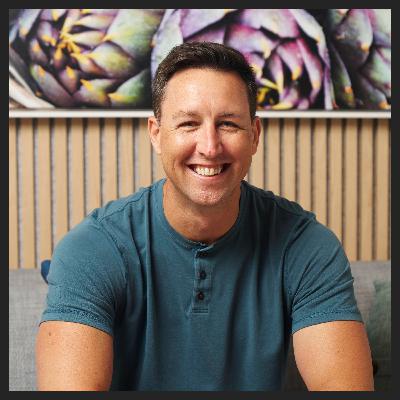
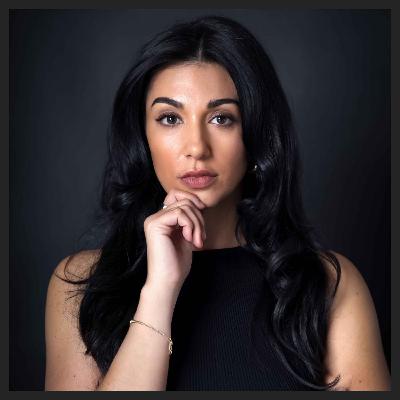
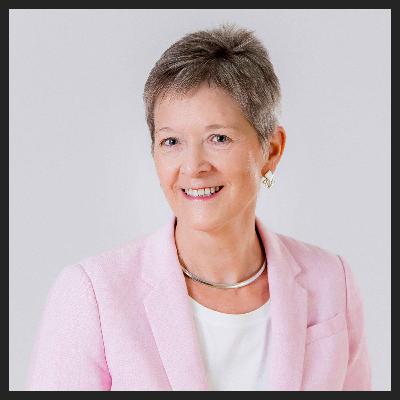
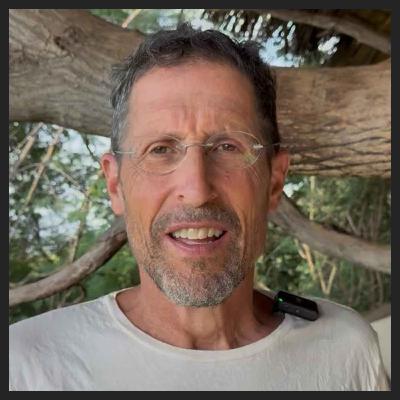


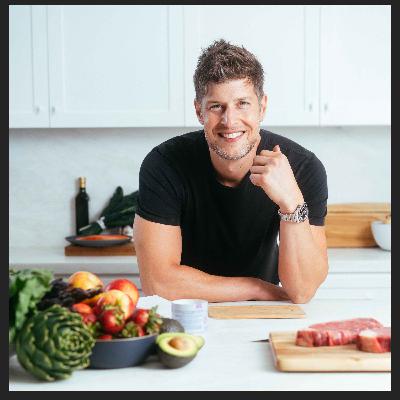
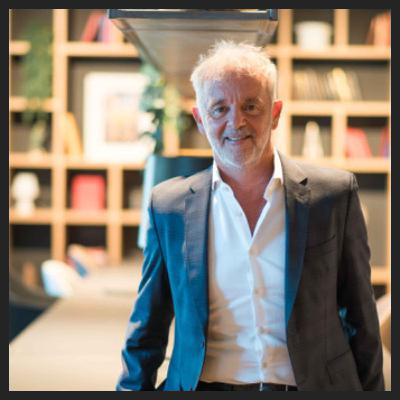
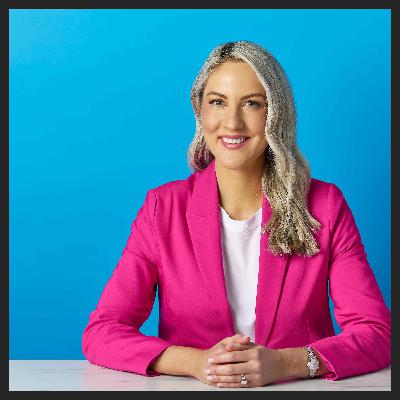


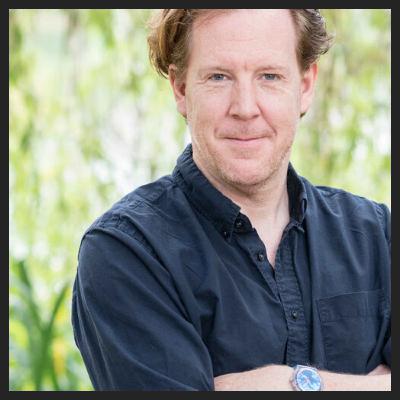
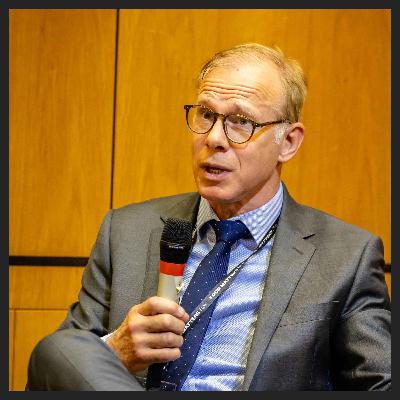
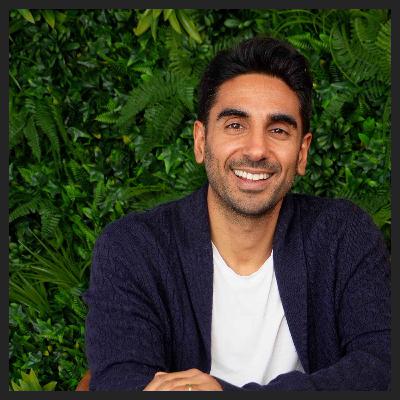
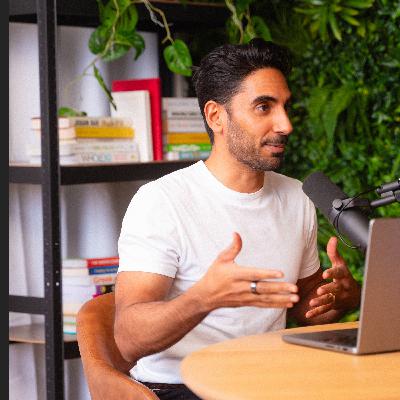
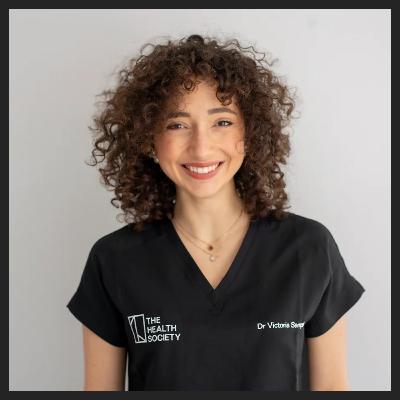
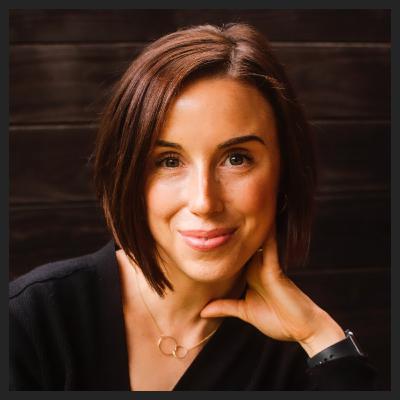



Great pos cast. very interesting
برای ارتقای سلامت مغز، رعایت چند نکته ضروری است: تغذیه سالم با مصرف مواد مغذی مانند میوه، سبزیجات و اسیدهای چرب امگا-۳؛ خواب کافی برای تقویت حافظه و تمرکز؛ ورزش منظم که جریان خون را به مغز افزایش میدهد؛ یادگیری مداوم برای تحریک ذهن؛ کاهش استرس از طریق مدیتیشن یا فعالیتهای آرامشبخش؛ و تعامل اجتماعی برای حفظ سلامت ذهنی. ترکیب این موارد میتواند عملکرد شناختی را بهبود بخشد و از سلامت روانی حمایت کند.
ایمونوتراپی برای سرطان مغز** یک حوزه پویا با پیشرفتهای بالقوه در درمانهای ترکیبی، تحویل هدفمند دارو و رویکردهای شخصیسازیشده است. با وجود چالشهای باقیمانده، تحقیقات جاری در پی بهینهسازی اثربخشی، کاهش مقاومت درمانی و بهبود نتایج بیماران است. مشارکت در کارآزماییهای بالینی همچنان برای پیشبرد این درمانها حیاتی است.
how come when I loose weight I lose muscle and if I gain weight I gain fat. I tend to cycle between 52.5kg and 53.5kg. Each time it goes down the % fat increases. Then as goes up the fat % stays the same. Over the last month I have increased fat % by 2.5 without gaining any weight at all.
Can consuming cacao or 85% chocolate help raynauds sufferers?
good info about if the keto is suitable for you or not .👍🌹
Hello! I had a personal search for my happy and healthy life. My biggest health problem was Asthma. I had problems with my respiratory system and it was really ruining my life. But recently I was recommended Apowus nebulizer official website https://apowusnebulizer.com/ where I found a nebulizer for myself. This is such a device that generates useful steam, breathing which reduces the problem of breathing in asthma. I am so glad I tried this nebulizer.
What about menopause & higher Total cholesterol? Has anyone studied what happens, post menopausal, to our levels?
would love to know who the book less is more is by?
totally amazing episode. so many useful takeaways
Really enjoyed this episode. Thank you!
My favourite episode so far. Some serious good for thought - especially with regards to how important leaving a positive digital footprint is.
I'm really blown away by these podcasts, im so delighted to have found someone with such great guests, and having huge knowledge himself. I recently discovered Dr Rupy and his podcasts, they can only improve your life in all aspects, I feel them impacting in a very positive way. loving the shows can't wait to work my way through them all, huge thanks from a very thrilled Irish Fan.
the podcast doesn't start till almost 10 minutes in..how many sponsors and offer codes do you have?.😭...the ads are super irritating!
Thank you for this amazing interview, I have learned so much and feel so inspired. i would love to continue learning more on the subject. 😍
Such an empowering chat, thank you! I love listening to your talks, they give me such good energy!
brilliant talk, thank you so much for sharing, i learned so much!
Fascinating and informative podcast, thank you both. Love listening to these whilst I'm cooking!
Brilliant episode!
Really informative. Great advice. EVERYONE should listen to this.